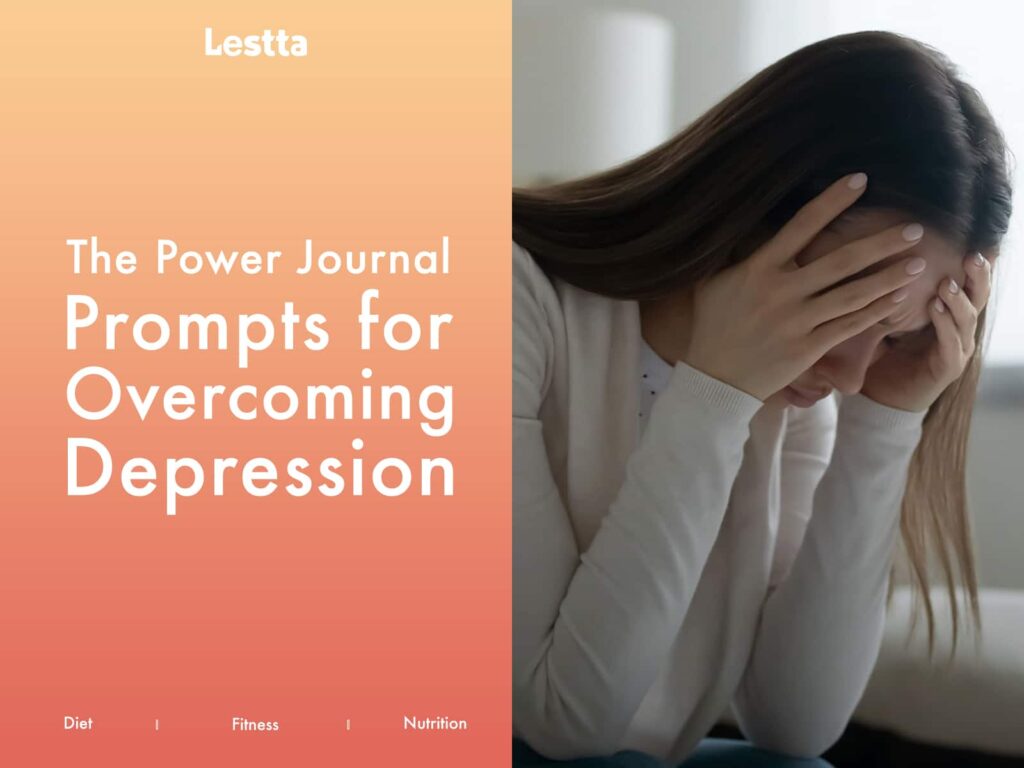
Journaling has long been recognized as a therapeutic tool for self-reflection and personal growth. When it comes to overcoming depression, journaling can be an invaluable resource. In this article, we will explore the power of journal prompts in the journey towards overcoming depression,.
The Healing Potential of Journaling
Depression can be a debilitating condition, impacting one’s emotional, mental, and physical well-being. Journaling offers a safe space to express thoughts, emotions, and experiences without judgment.
It allows individuals to confront and explore their feelings, gain insights into their triggers, and work towards finding healthy coping mechanisms.
1. Gratitude Journaling
One powerful journal prompt for overcoming depression is to focus on gratitude. Each day, write down three things you are grateful for. This exercise shifts the focus from negativity to positive aspects of life, fostering a sense of appreciation and hope.
2. Emotion Release
Depression often involves a complex mix of emotions, including sadness, anger, and frustration. Use journal prompts that encourage the release of emotions, such as “Write about a time when you felt overwhelmed with sadness,” or “Describe the emotions you are currently experiencing.”
By allowing yourself to acknowledge and express these feelings on paper, you can gain a sense of relief and clarity.
3. Self-Reflection
Journaling provides an opportunity for self-reflection, allowing you to examine your thoughts, behaviors, and patterns. Use prompts that encourage self-reflection, such as “What are some negative thought patterns that contribute to your depression?” or “Describe a time when you overcame a challenging situation.”
By identifying negative patterns and acknowledging personal strengths, you can develop strategies to overcome obstacles and build resilience.
4. Self-Compassion
Depression often comes with self-critical thoughts and feelings of worthlessness. Use journal prompts that foster self-compassion, such as “Write a letter of kindness and understanding to yourself,” or “List three qualities you appreciate about yourself.” Practicing self-compassion can help counteract negative self-talk and cultivate self-acceptance and love.
5. Goal Setting
Setting small, achievable goals can provide a sense of purpose and direction. Use journal prompts to outline goals and action plans, such as “What small steps can you take today towards improving your mental well-being?” or “Describe one activity that brings you joy and plan to incorporate it into your routine.”
By breaking down larger goals into manageable tasks, you can experience a sense of accomplishment and progress.
Conclusion
Journaling is a powerful tool for overcoming depression, providing a safe space for self-expression, self-reflection, and personal growth. By using journal prompts, individuals can navigate their emotions, cultivate gratitude, practice self-compassion, and set achievable goals.
It is important to remember that journaling should be a complement to professional help, and individuals should seek support from mental health professionals when needed.
Committing to a regular journaling practice can contribute to the healing process and offer insights and perspectives that might otherwise go unnoticed.
Embrace the power of journal prompts as a stepping stone towards overcoming depression and creating a more fulfilling and balanced life.









